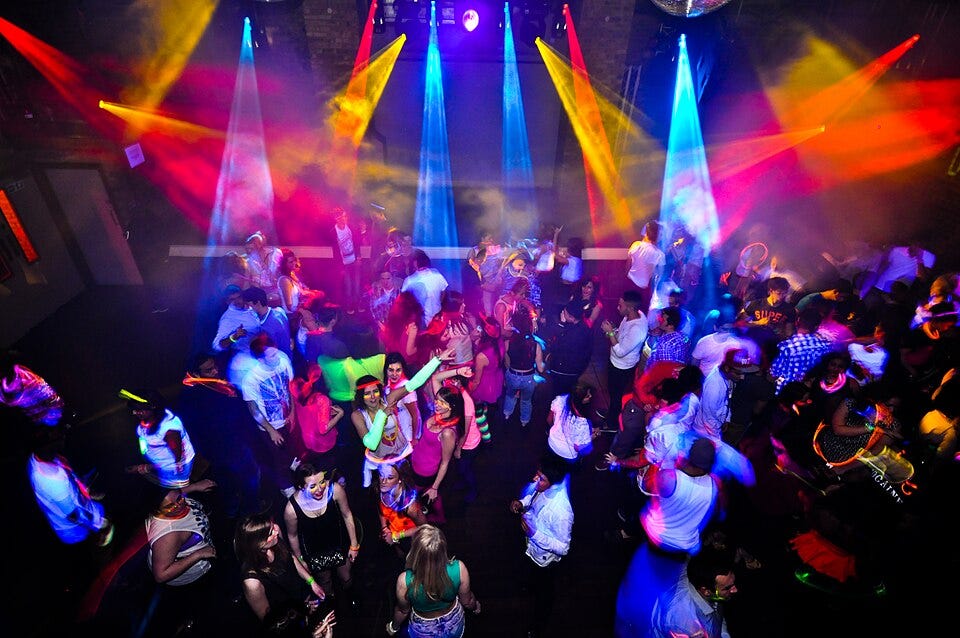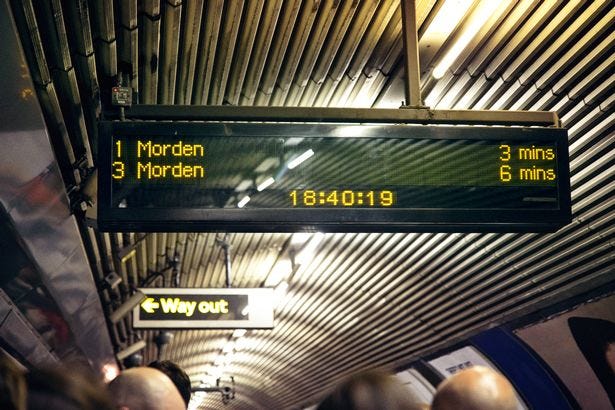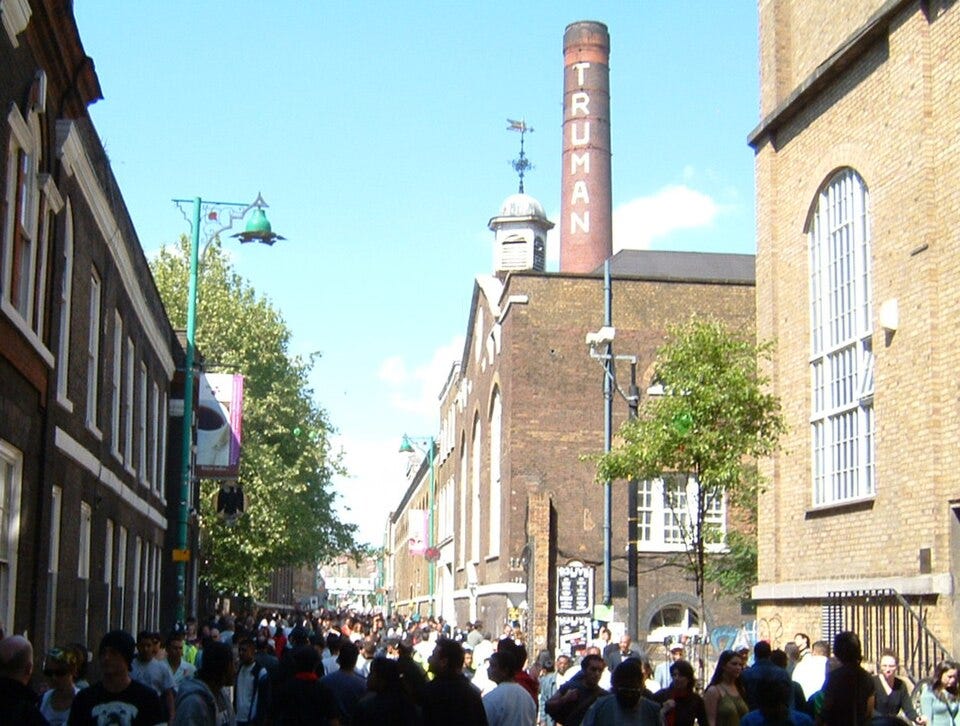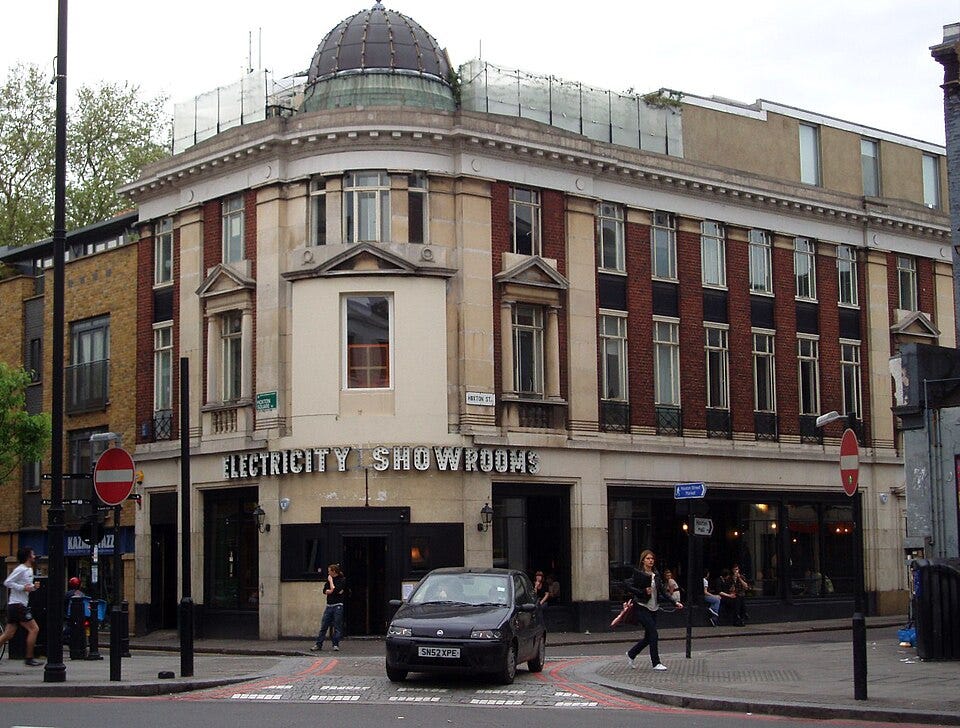Humans are cultural animals. Among other things, this means that they delegate their memories to the collective. We are constantly replacing our own memories with those of the powerful and influential. I’ve read some nostalgic takes on the 2000s, centring on the culture of the internet and of Silicon Valley. Fair enough! Those places created the contemporary world (or at least, the contemporary West, and China is not culturally influential enough, yet, to tell its story) so of course they are interesting. But as a bit of historical corrective, let me try to recall the 2000s in London.
We didn’t realise it, but those were good times, at least economically. The UK’s extremely finance-focused economy was in full swing; leaving the EU was a bee in the bonnets of some fringe Conservatives, which was one reason the party seemed likely to be in perpetual opposition. There was heavy traffic across the Atlantic. People talked about NYLON, an acronym for “New York and London”. In Triumph of the City (2011) the urban economist Ed Glaeser would eulogize London as a “playground”. By default, Oxbridge graduates went into the City. Then as now, finance was the default career choice for people who were young, smart, and had no particular ideas or passions of their own. Back then, they also came across as extremely arrogant. They were the Masters of the Universe. It was a time when you could order a cocktail costing £10,000 at a bar, it had real gold leaf in it, and the music would play Hey, Big Spender when you came to pick it up.
Or so I heard. Meanwhile I was in Stoke Newington working on my internet start up.
Stoke Newington was a step forward from my first place in London, a tiny bedsit in Tooting Broadway. London is a city where you cannot mention your postcode without someone else despising you. My brothers, who had grown up in town, used to mock certain places by pronouncing their names in a fake-sophisticated French accent: Tooting Bec became “Tootang Bé” and Clapham was “Cla’am”. Tooting Broadway was yet farther out down the reliably-bad Northern line (allegedly, on the Northern line train displays, there were 100 seconds in a minute). Our bedsit wasn’t even close to the tube; it was opposite a cemetery and my flatmates got their entertainment by watching people coming and going in “cemie-land”. In that decade I probably moved house more than ten times, from tiny shared flat to shared flat. Brixton still felt dangerous. Walking up Brixton Hill, you’d be accosted by a guy who would tell you that he’d just got out of prison, show you his “charge sheet”, an official-looking document detailing some terrifying act of violence, and politely ask if could you possibly spare some change? Clapham was safer. But then… in Will Self’s spoof map of London in How The Dead Live, Clapham was labelled as Dulburb. (See what I mean about postcodes?) South London felt small. I went north.
Stokie itself was comfortable and bourgeois, by reputation it had the highest birth rate in the UK but was also where you might live if you were lesbian. The deli served excellent olives; Stoke Newington cemetery was the site of William Booth’s grave, pleasant, leafy, and frequented by urban fauna including foxes and Turkish gay men. Down the road was Dalston; the high street still bore the nickname “Murder Mile”, and in the 1980s heroin had supposedly been sold out of Stoke Newington police station. Yet it was up and coming. It was still relatively cheap, and as Jane Jacobs pointed out, it is more promising for a neighbourhood to be dangerous than boring. And further on down the same road was Shoreditch, where things were happening.
I had learned to code in about a month, it didn’t seem hard. I was writing perl, a cool and anarchic computer language invented by a born-again Christian. For a while perl dominated the internet. Later, it was gradually replaced by PHP, which was even more internet-centric, and looked less like a monkey had gone nuts on your keyboard, but was badly designed and mind-numbingly dull. Anyway, so what if the code I wrote had huge security holes? We were getting orders! Our business was, um, an online shopping cart for domain names. If that phrase barely conveys anything any more, it’s really not important.
A friend of mine came round, sat down on my laptop, and without asking typed “bestiality” into Google. It was for laughs! We didn’t know about privacy back then. With touching national pride, the top website was entitled “Best of British Bestiality”. Perhaps there is still some unusual vector in a database of consumer interests, attached to a cookie, attached to my name. He worked in finance too, incidentally. I won’t tell you which company (Deutsche Bank).
Six months later the orders started being cancelled and we discovered we had been hit by credit card scammers. As the internet bubble popped around us, I and my partner tried a last roll of the dice: we’d get an office in the Truman Brewery and hire some employees—like a real business!—to make sales calls.
The Truman Brewery was right on Brick Lane. It was “before it was cool” though actually it already had people who would swear it wasn’t cool any more. But the Brewery was full of microbusinesses run by young men with astonishing haircuts. Offices were just partitioned-off cubicles and our neighbours were all either internet businesses like us, or record labels. After work everybody took their haircuts downstairs to drink. Opposite there was 93 Feet East, the legendary night club. Now I already feel the urge to replicate the effect I mentioned, and slant my own memories towards what was cool and influential. Luckily I can’t, because we never went to 93 Feet East; every time we tried, the queues were too long and we weren’t beautiful or interesting enough to jump them. So we stayed opposite and danced at the Brewery with the other plebs, and now I wonder, despite the queues outside, did any real human ever actually enter 93 Feet East, or was it like Willy Wonka’s factory: nobody ever comes in and nobody ever goes out?
Shoreditch was full of clubs with the overspill of finance money and the sex that goes with it. One night was called All Over My Face. The linear beat of 90s dance music was being replaced by something more syncopated and hip-hop influenced. You had to dance to it differently too, moving your hips more and trying to look tough. Boo! It didn’t suit me.
By 2001 I felt burnt out after too many late nights writing perl. I had started to realize I wanted to express myself, for my voice to be heard, and I decided, don’t laugh, to go into academia. My business partner, much more businesslike than I ever had been, took off to the US west coast. It turned out that was where you had to be to run software startups.
Before I started my PhD, I fulfilled a long-held resolution and volunteered for a homelessness charity. It was a residential program, so we lived in small houses with people coming out of homelessness: typically the very hardest cases, with multiple long-term issues. I wasn’t very good at it, but I did a lot of driving the charity van around town. I was seeing the places I knew from a different angle. The anonymous building a few doors down from the cool live music venue might turn out to be a homeless shelter. They were “wet” or “dry” depending on if you were allowed to drink in them. People preferred the wet ones, but, as a co-worker put it, some of those were “death factories”. It is not always better to be housed than on the streets. That depends who else is in with you, what threats or temptations. The filthiest house of the charity was the one reserved for volunteers on their days off: knackered after the chaos of the week, nobody wanted to clean, so there were always bed-bugs.
The charity itself was created in the 1960s, another of London’s good times. It had that optimism and radicalism. The idea, as the founder had put it, was not to reach down to give a hand up, but to get down into the gutter with the homeless and work with them there. Unlike other charities, when we went out on the streets we handed out roll-up cigarettes. It wasn’t “good for people”, but it built trust because it was something they actually wanted. The Labour government had decided to count rough sleepers in London. It was a typically New Labour move: it was bureaucratic and gameable in obvious ways, but it was also a way for the state to show some interest in the poorest. We were skeptical so we went out and ran our own, rival count. Obviously, everything was decided by consensus between workers and residents (the ex-homeless people themselves), in never-ending meetings where everyone could speak up, and usually did.
Afterwards I returned to East London for a few months, this time to Dalston itself, which was getting cooler and richer. I visited my old landlord and friend in Stoke Newington; we sat in Clissold Park on a spring day. The conversation petered out; we realised with a shiver that we were getting older. People started to have weddings.
Then I moved out to Essex for my PhD. I’d still come back into town, because my friends were still living there. Driving down the A12, you switch back and forth between concrete underpasses and green fields. It reminds me of the swooning shifts in the St Etienne instrumental Urban Clearway:
In 2008 a friend from the city told me “there’s something odd in the markets”. A few days later, Lehman was bankrupt and people were queuing round Northern Rock branches, and it turned out that the Masters of the Universe were not masters of anything after all. (My Deutsche Bank friend recalled him and a colleague eating sandwiches on a park bench, asking each other two questions: “was that our fault?” and “do you actually know what we’re doing?”) And not many years after that, it turned out that London was not, in fact, New York’s peer.
In the 2010s, I came back to Brick Lane for a while. I met an old acquaintance for a date in a Hoxton bar. There was a deer’s head on a shield on the wall. The English imagination still runs to fantasies of the country house and the upper class. The bar and the streets outside were crowded with people who seemed anxious to show off. Whatever it was that had been there had moved on. The date didn’t work out. I hadn’t tried very hard. At that time, I had not realised what it meant to be a single woman and 35; or to be a man and that age, for that matter.
If I think about the arrogance of those days, it has a sort of fragile quality. The people going into finance didn’t seem to believe they were building something important; it wasn’t like Silicon Valley the TV show. They just seemed to want to get rich. In the long run, that is not a very sustaining motivation for most people. I turned up at a house party in South London in the 2010s, which was full of ex-finance types who all seemed to be starting a Community Interest Company, or doing something for the planet. Their ideas and hopes seemed to be more altruistic than finance, but also less likely to make a city throb. And on the other hand, the software scene has not really produced much either. Internationally it has been a winner-take-all world, the winner has been Palo Alto, and it’s there that they will write history about.
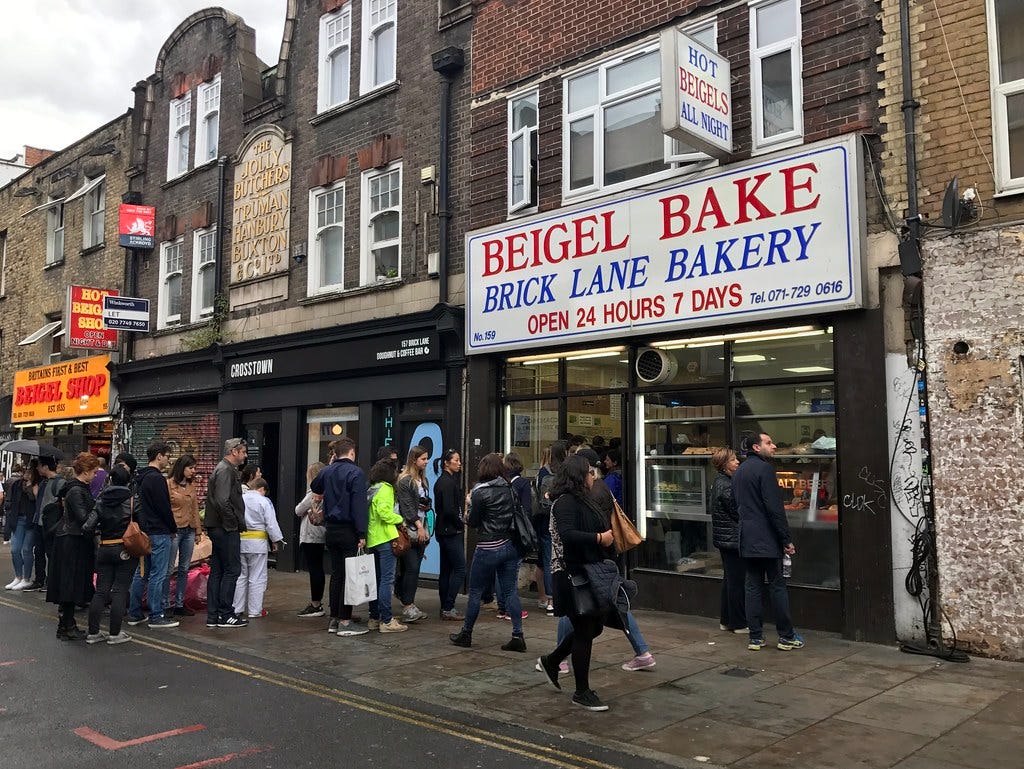
Like the 2000s in the Bay Area, the 2000s in London were a time of green shoots, but London’s shoots didn’t come to fruition. Why not? There are obvious answers. One is market size: the US has five times as many potential customers as the UK, and the EU single market doesn’t necessarily work that well for services. Another would be that the US is more capitalism-friendly than Britain, less regulated and taxed—or at least, it was in the 2000s.
I wonder though if motivation had something to do with it also. I think of English football. Premier League players too were masters of the world in their sport, and so famed for arrogance that Private Eye magazine started a comic strip called The Premiershits. But the national team always seemed to flake under pressure. There’s a level of self-belief that can only come from a mission. Perhaps that’s what it was: there wasn’t enough mission…. Well, it was a playground! What do you expect?
